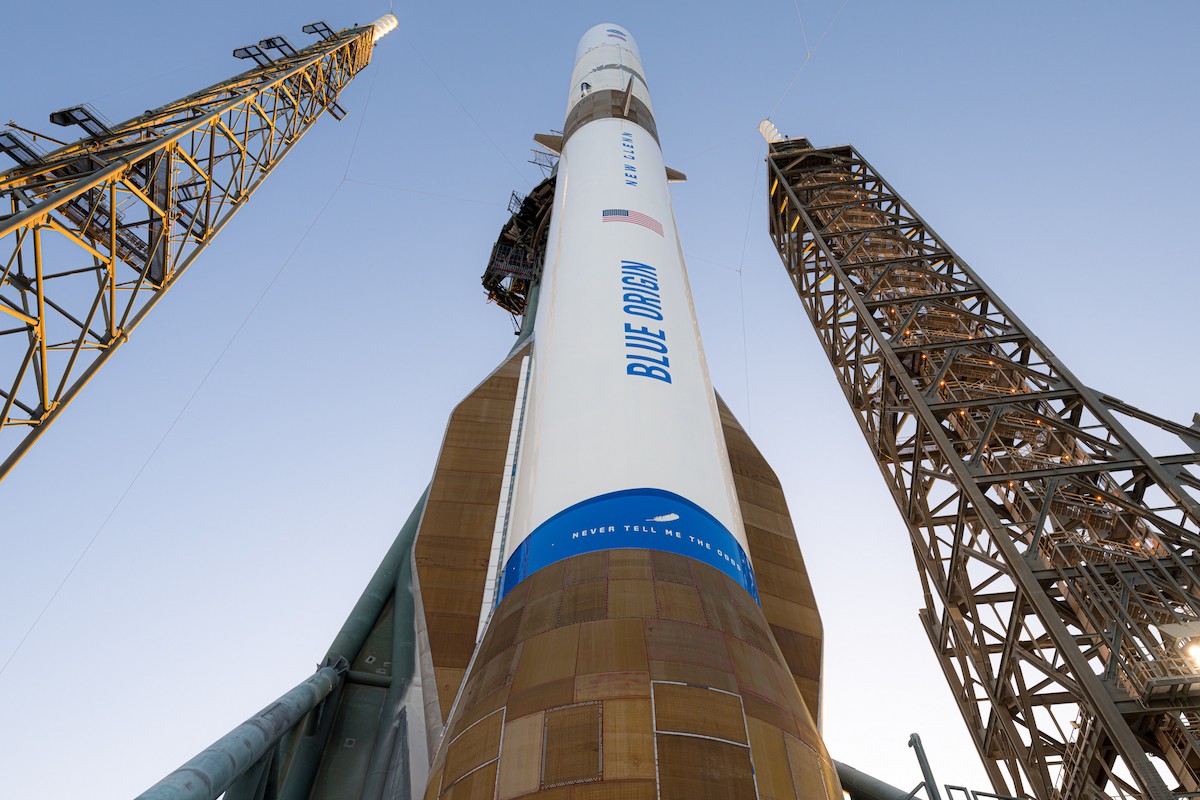Jeff Bezos’ space company, Blue Origin, has postponed the second orbital flight of its powerful New Glenn rocket due to a confluence of factors: unfavorable weather conditions, minor technical glitches at the launch pad, and an unexpected cruise ship incursion into the designated flight path.
This setback comes as Blue Origin seeks to solidify the operational readiness of its newest heavy-lift rocket and establish itself as a formidable competitor in the burgeoning commercial space market dominated by SpaceX. The New Glenn mission was originally slated for Sunday afternoon from Cape Canaveral, Florida.
While no new launch date has been announced, Blue Origin confirmed it is evaluating alternative launch opportunities based on projected weather patterns and working with the Federal Aviation Administration (FAA). This agency, however, imposed temporary restrictions on space launches last week due to the ongoing federal government shutdown, adding another layer of complexity to Blue Origin’s scheduling.
The scrubbed launch carries significant weight for several reasons. First and foremost, it represents a pivotal step in proving New Glenn’s reusability, a core design principle crucial to its long-term cost-effectiveness. During its inaugural flight in January, New Glenn successfully reached orbit but the booster stage suffered an explosion before attempting to land on a designated drone ship. This time around, Blue Origin aims to achieve a successful landing of the booster, marking a critical milestone in demonstrating the rocket’s ability to operate as planned and ultimately reduce launch costs.
Secondly, this mission marks New Glenn’s first foray into commercial service. The rocket was tasked with carrying NASA’s ESCAPADE spacecraft – destined for a crucial Mars exploration project – along with a technology demonstrator for Viasat, another NASA undertaking. Successfully delivering these payloads to orbit safely and reliably is vital for Blue Origin to establish itself as a reliable and competitive launch provider capable of attracting future commercial contracts and rivaling SpaceX’s dominance in the market.
The initial launch window opened at 2:45 p.m. local time, with an approximate ninety-minute window for takeoff. However, weather concerns and minor technical issues with equipment on the launchpad led to multiple delays throughout the afternoon. As the clock ticked down, a cruise ship veered unexpectedly into the designated flight path, prompting further postponements just moments before the potential liftoff. Despite attempts to adjust the launch sequence to accommodate the maritime intrusion, unfavorable weather conditions ultimately sealed the fate of the delayed attempt, forcing Blue Origin to call off the mission entirely.
